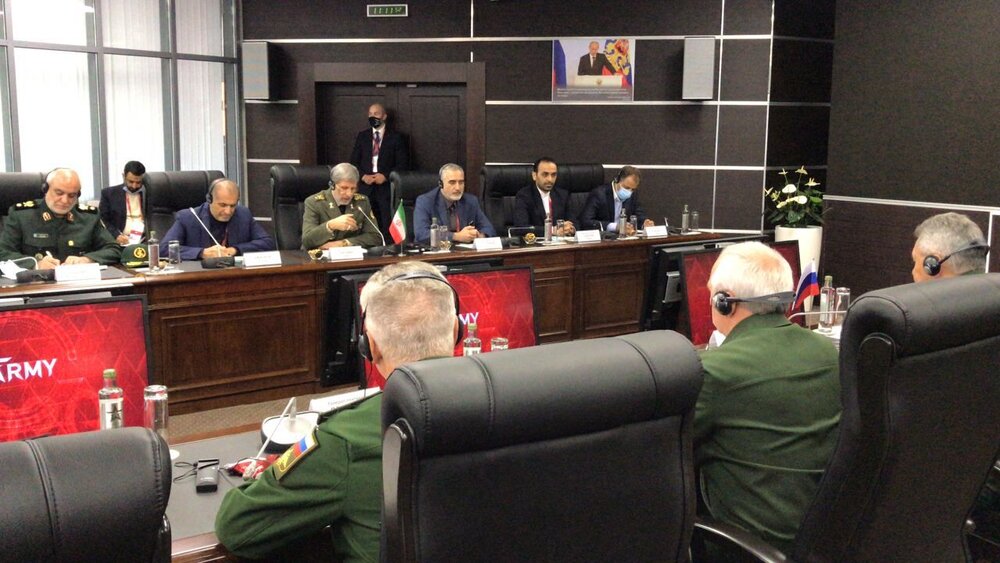Iranian, Russian defense ministers highlight importance of military ties

TEHRAN – Iranian Defense Minister Amir Hatami and Sergey Shoigu, the Russian defense minister, who met in Moscow on Sunday attached great importance to expansion of military cooperation.
Hatami said that strengthening Tehran-Moscow cooperation is essential.
“I am sure that the joint strategy adopted by Tehran and Moscow in solving the regional problems can bring peace, stability, and security to the region regardless of the United States’ unilateral policies,” he said.
Shoigu also said that it is essential to expand regional cooperation in line with establishing peace and stability.
He noted that Iran and Russia share common objectives toward regional issues, saying that the defense cooperation between the two countries is growing.
Iran’s ambassador to Russia said on Saturday that there will be a new chapter in military and technical cooperation between Iran and Russia.
Jalali also said that Iran will continue military consultation with Russia along with talks on the 2015 nuclear deal and fight against the coronavirus pandemic.
‘U.S. failure at UNSC shows opposition to unilateralism’
Hatami also said that the U.S. failure at the UN Security Council to extend arms embargo on Iran showed the world’s opposition to unilateralism.
“The response by [remaining] members of the JCPOA [the 2015 nuclear deal] to triggering snapback mechanism and restoring sanctions was another blow to the United States’ excessive demands,” he remarked.
U.S. Secretary of State Mike Pompeo on Thursday officially informed the UN Security Council it is demanding the restoration of all UN sanctions on Iran, insisting that the U.S. has the legal right to “snap back” UN sanctions.
President Donald Trump officially terminated the U.S. participation in the JCPOA in May 2018 and imposed sanctions against Iran.
Thirteen countries out of the 15-member UN Security Council have expressed their opposition to the U.S. bid to reimpose the UN sanctions on Iran, arguing that Washington’s move is void given it is using a process under a nuclear deal that it quit more than two years ago.
According to Reuters, long-time U.S. allies Britain, France, Germany and Belgium as well as China, Russia, Vietnam, Niger, Saint Vincent, and the Grenadines, South Africa, Indonesia, Estonia, and Tunisia have written letters in opposition.
NA/PA
